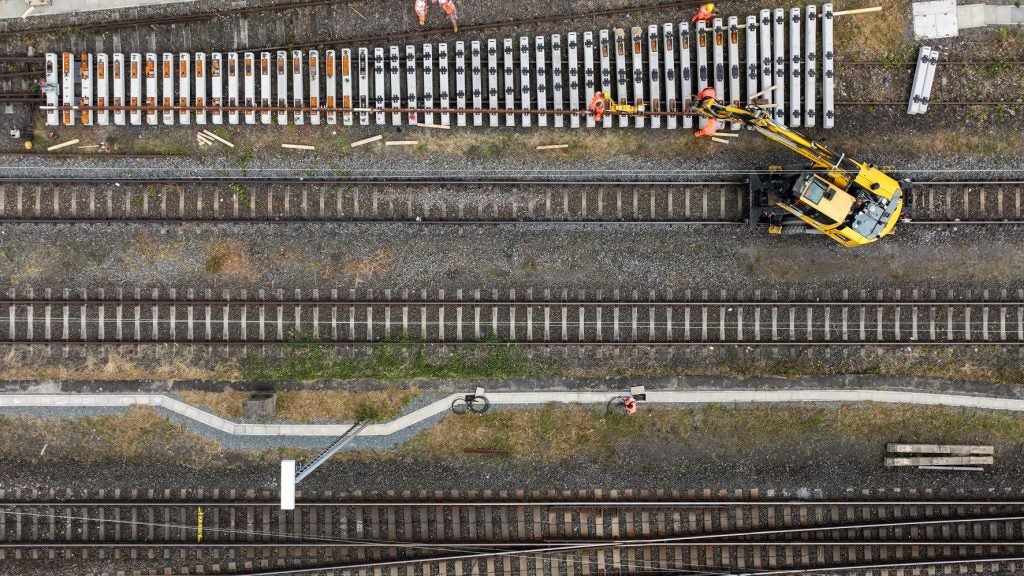The proposed Tshiuetin railway modernisation project will involve the upgrade of the Tshiuetin railway line, the first railway owned and operated by First Nations community in Canada. The project will stimulate the economic growth of communities along the Northeastern Quebec and Western Labrador route.
Tshiuetin Rail Transportation and Tshiuetin (collectively, Tshiuetin) will upgrade the infrastructure and equipment of the Tshiuetin railway line in collaboration with the Canada Infrastructure Bank (CIB), Transport Canada (TC), and the Government of Quebec.
Tshiuetin Rail Transportation, which is the operator of the services between Schefferville and Sept-Îles, is jointly owned by the three First Nations, namely the Innu Nation of Matimekush-Lac John, Naskapi Nation of Kawawachikamach, and Innu Takuaikan Uashat Mak Mani-Utenam.
The project will provide improved mobility, efficiency, safety, and comfort to communities along the route.
Tshiuetin railway line details
The 217km-long line links Emeril in Labrador with Schefferville in Quebec. It is the only land transport link that connects the three First Nations.
In addition to the 217km-long railroad, Tshiuetin operates a 574km-long passenger train service along the north-eastern Quebec and western Labrador rail route.
The Tshiuetin railway network is used for the transportation of fuel, food, construction materials, medicines, vehicles, and household goods. It also enables indigenous communities to safely access remote hunting areas.
Tshiuetin railway modernisation project details
The modernisation project will involve significant railway track modifications and the construction of a new train station. A new worker housing camp will also be constructed as part of the associated works.
New fuel-efficient locomotives and passenger cars with upgraded technology will be acquired as part of the project. The improved control system in the new trains will improve passenger comfort and safety.
Furthermore, the new trains will feature communication technology and long-term evolution (LTE) connectivity, which will eventually allow for Wi-Fi access inside the train.
Benefits of Tshiuetin railway modernisation project
The modernisation project will address the need for adequate railway infrastructure for communities and improve connectivity between the three First Nations. It is also expected to improve employment opportunities and economic growth in the region.
The project will also reduce travel times across the route. Upgraded trains will support efforts to cut greenhouse gas emissions across the route.
Additionally, the line upgrade will increase the freight handling capacity and efficiency.
Funding for Tshiuetin railway modernisation project
The CIB will provide a long-term, fully repayable loan worth C$50m ($40.1m) to Tshiuetin to implement the project. The Quebec Government will offer a loan of C$5m ($4m), which will be repayable in two years. It committed to providing the loan under its Northern Action Plan 2020-2023 (NAP 20-23), which outlines a number of measures to improve living conditions in the northern region, including the provision of multi-user access to the Labrador Trough geological belt.
The project represents the first investment made by the CIB under its Indigenous Community Infrastructure Initiative (ICII), which seeks to support Aboriginal communities through an investment of C$1bn ($800m approximately) in infrastructure projects. It also marks the bank’s first investment in the Newfoundland and Labrador province.
Furthermore, the CIB will provide commercial appraisal and financial modelling for the project.
Transport Canada will continue to provide subsidies worth C$12m ($9.62m) a year to Tshiuetin for meeting its operating and capital expenditures.
Contractors involved
Tshiuetin Rail Transportation engaged SYSTRA Canada to conduct a technical study of the network’s transportation capacity and railway safety in May 2017.
The study included track inspection of the section from Emeril Junction to Schefferville. The contract also involved the study of works to be implemented across the network in the next five to ten years.










